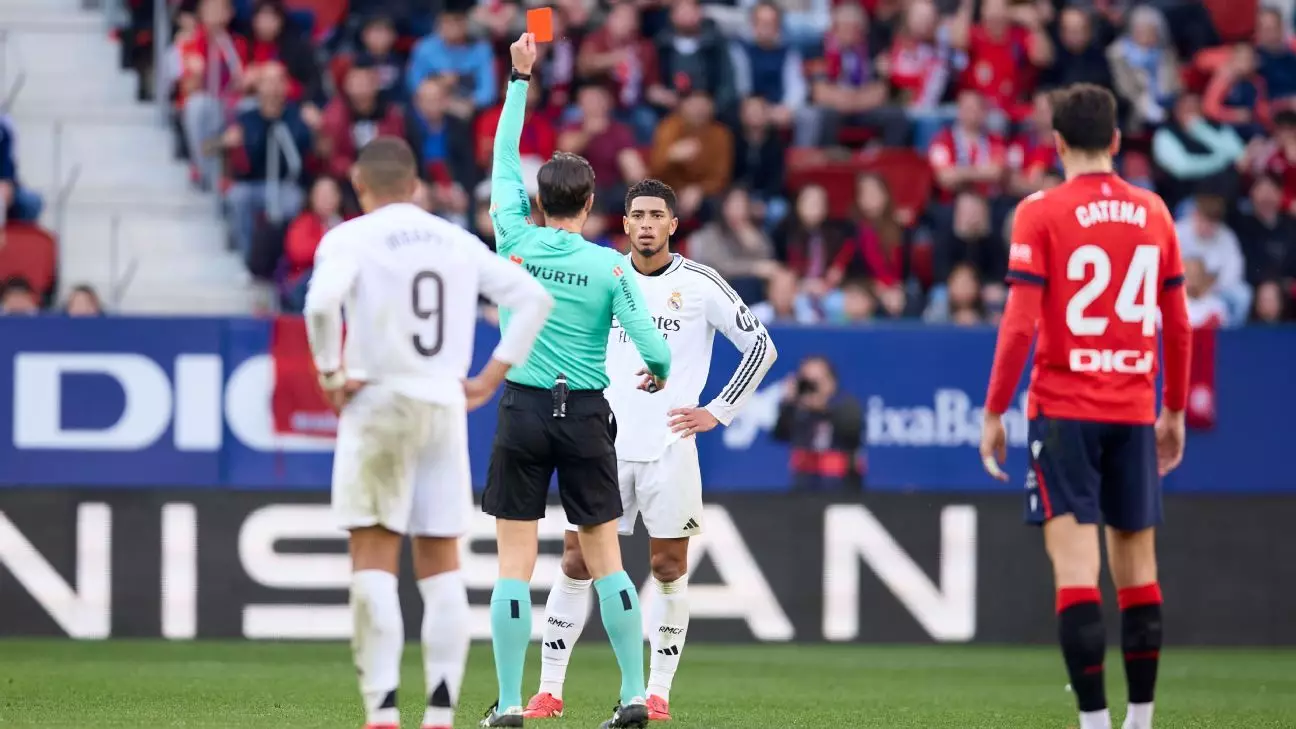The ongoing debate surrounding refereeing standards in football continues to capture the attention of fans and managers alike. Recent comments from Carlo Ancelotti, Real Madrid’s head coach, have once again brought this issue to the forefront, particularly in relation to the contrasting officiating experiences between LaLiga and the UEFA Champions League. As Madrid navigates its playoff clash against Manchester City, Ancelotti’s insights not only reflect the frustrations of his team but also the broader context of refereeing in European football.
In a pre-match press conference, Ancelotti expressed a preference for the refereeing in the Champions League, arguing that there’s “less controversy and fewer VAR interventions.” His remarks stem from a context where Real Madrid has faced significant officiating challenges in their recent LaLiga matches, leaving the club feeling aggrieved. The Italian manager’s assertion that “the best referees in each country officiate” in the Champions League highlights a crucial aspect of the tournament’s allure—the perceived higher standard of officiating which many believe enhances the integrity of the matches.
Ancelotti’s view contrasts starkly with Madrid’s LaLiga experiences, where the team has encountered contentious calls that could potentially alter match outcomes. His comments indicate not just a personal preference but a broader critique of the inconsistencies in domestic officiating. The fact that Madrid executives sought discussions with Spanish refereeing officials following their complaints highlights a desperate need for accountability and clarity in the officiating of LaLiga games.
Another pivotal point raised by Ancelotti concerns the use of Video Assistant Referee (VAR) technology. He argues that VAR interventions in the Champions League are judicious and occur only when necessary, contrasting this with LaLiga, where the technology seems to provoke more questions than it answers. Fans and pundits alike have criticized VAR’s implementation in Spain, pointing to situations that led to confusion rather than clarity.
This commentary invites a broader discussion regarding how VAR can be used more effectively across different leagues. The key is establishing a uniform approach where the technology enhances rather than detracts from the spectacle of football. Ancelotti’s perspective sheds light on how a more decisive use of technology could elevate the officiating standards, particularly in fiercely contested competitions.
Real Madrid’s dissatisfaction with officiating decisions has reached a boiling point following a series of controversial calls in recent LaLiga fixtures. Ancelotti highlighted significant grievances from their last three league matches, emphasizing decisions that adversely impacted the team’s performance and points tally. The frustrations surrounding these choices have culminated in an “open letter” sent by the club to express their discontent regarding the credibility of Spain’s refereeing system.
Moreover, the incident involving Jude Bellingham’s controversial red card epitomizes the tension surrounding officiating standards. Madrid remains hopeful that the decision will be overturned, showcasing how pivotal refereeing decisions can shape the trajectory of a player’s season and a club’s aspirations. Ancelotti’s comments reflect his keen awareness of the psychological impact that such decisions can have on players, especially the young talents like Bellingham.
As Real Madrid gears up for the decisive second leg against Manchester City, the stakes could not be higher. Equipped with a narrow 3-2 advantage from the first leg, Ancelotti’s men are poised to capitalize on their home-ground advantage at the Santiago Bernabéu. The Italian coach’s remarks about the match’s dynamics reveal a nuanced understanding of the game’s psychology; he downplays the vagueness of a “1% chance” assertion made by City’s Pep Guardiola, stating that Madrid recognizes the opportunity they have while remaining grounded in reality.
Additionally, the team’s preparation extends beyond strategic gameplay to encompass a mental fortitude fostered by recent experiences. Players like Fede Valverde express confidence stemming from their training regimens and recent performances, suggesting a collective determination to overcome the barriers that poor officiating may have imposed.
Ancelotti’s remarks provide a microcosmic view of the larger issues surrounding refereeing in football, illustrating a divide between LaLiga and the Champions League. As Madrid navigates these challenges, their experiences shimmer a spotlight on the necessity for clarity, consistency, and accountability in officiating on the grand stage of football.

